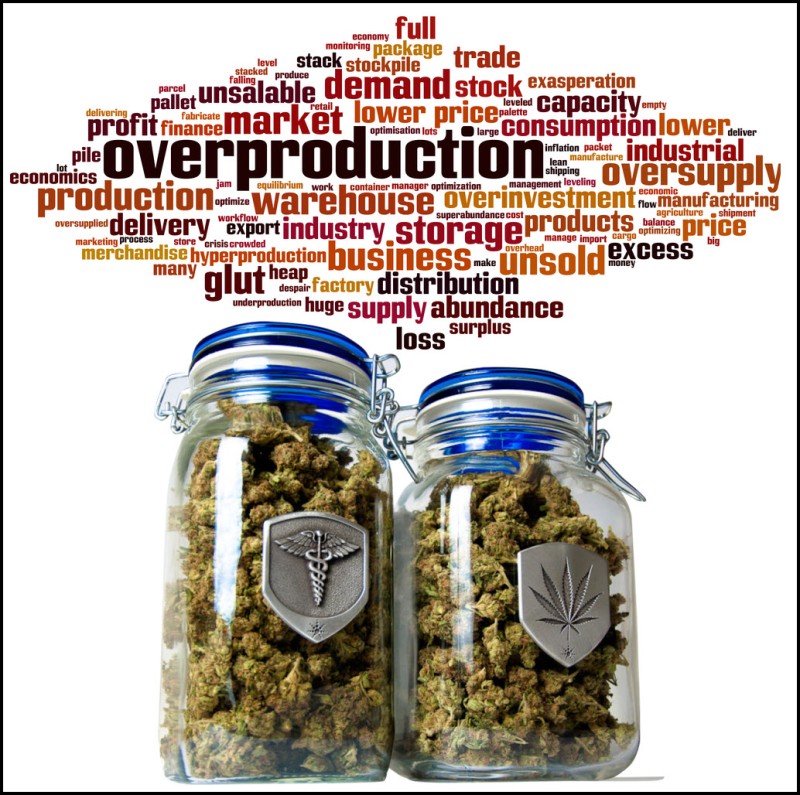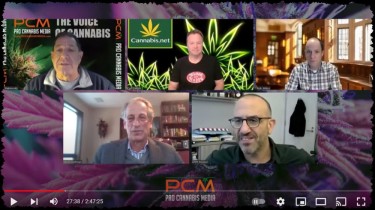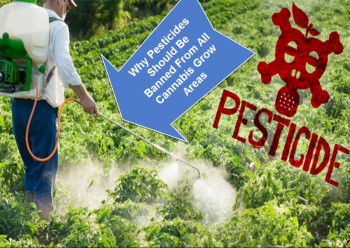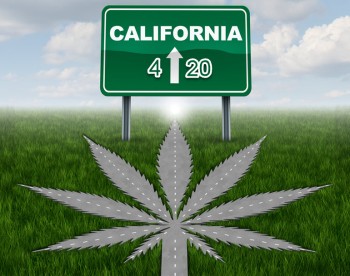Will Oversupplied Markets Wipe Out Smaller, State Markets if Interstate Marijuana Commerce is Legalized?
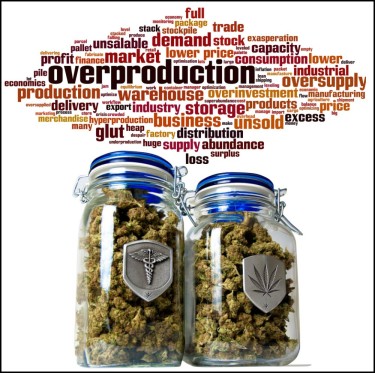
Much has been written, espeically on Cannabis.net, about the benefits of interstate marijuana and hemp commerece with full Federal legalization of the plant, but many small market growers in places like New York and Massachusetts are worried that oversupplied areas of the West Coast could flood their markets with cheaper hemp and cannabis. In the transition to a fully efficient pricing market on the national level, will the oversupply of cannabis and hemp on the West Coast create massive price drops for the product as it gets shipped to the East Coast?
Hemp farmers in New York fear they are about to be sidelined by the newly-created recreational cannabis industry. Their biggest worries rally around the notion that the industry will be saturated with large cannabis production companies, and small-scale farmers like themselves will have little or no hold.Their fears are valid and worth losing sleep over because the New York cannabis industry is very lucrative. The entry of large corporations will begin a competition that small-time hemp farmers have no resources to win.
The medical cannabis industry had a place for social equity participants and small business owners, but the recreational industry is a different ball game altogether. Not only will the new production companies retain a large percentage of the recreational consumers, but they might also attempt to delve into the medical industry.
Pam Chmiel, a reporter at GreenEntrepreneur recently interviewed with the New York President of Cannabis Growers and Processors Association, Allan Gandelman. In the next paragraphs, I'll be highlighting the major points made during the interview. (Full disclousure, GreenEntrepreneur syndicates Cannabis.net content on its site)
About Allan Gandelman
Gandelman has been taking strides behind the scene to ensure small business owners have a level playing field with the large corporations to battle for customers and interstate transactions. He has been a hemp farmer for a long time, he is the co-founder of the Head and Heal brand. He advocates for help and cannabis reforms whenever and however he can. Currently, his focus right now is making sure other small-scale hemp farmers and social equity business owners are fully prepared when the recreational industry begins operations.
Allan's View on Federal Legalization and Interstate Trade
During the interview, Pam and Gandelman talked about the looming federal legalization and the interstate trade of cannabis products.
Gandelman said he feels interstate commerce and federal legalization are not needed at the moment. According to him, interstate commerce through a profitable venture could bring a downfall to the business of small farmers and social equity members.
The interviewer, Pam, used the current oversupply situation in California and Oregon to further buttress her point that state borders be opened for interstate trade. Mr. Gandelman went on to explain that while interstate trade helped California and Oregon do away with that oversupply problem, it would make it very hard for recently legalized and intending states to meet up California's current level of production. For example, greenhouses and outdoor cultivation of cannabis on a large scale could take years to develop.
Not to mention the fact that those two states are currently selling at the lowest rates possible to their consumers. Only large corporations who have extensive financial credit can take on such a challenge.Give it five years from now, most states will be at a uniform starting line. That would be the best time to implement interstate trades, it could be later than that, but certainly not earlier than five years.
He also added that the operations of MSO's need to be stalled for a while until farmers in the industry can afford to put the right infrastructures in place to stay up to their production. Interstate commerce has adverse effects that a lot of people are turning a blind eye to. It is high time the government modified the cannabis laws to safeguard small-scale businesses.
Hemp Farmers Will Need Help Transitioning For The New Legislation
When asked about the New York Farmers' readiness for legalization, Gandelman said the people who are positioned for the organization are those who already have greenhouse and extraction facilities operating in the state. These current farmers have hemp and CBD production sites that have been running for three to four years. Despite this, they would still find it very hard to compete against the incoming large corporations.
"Businesses will look for the cheapest manufacturers if borders are opened"
Gandelman made this statement when asked about the interstate trade of cannabis. He stated that it would make a lot more sense if partnerships are made with CPG brands to manufacture their product. If interstate trade is encouraged, many will lose money. When the medical cannabis industry was being developed, interstate trade of hemp and CBD was allowed and it ended badly. At that time, almost everyone overgrew the planets because it was cheap, and then to alleviate their oversupply, they had to sell their hemp CBD for pennies on the dollars. The same would happen if the same is allowed for adult-use weed.
He reiterated that in the case of international trade, States would rather import from Columbia than import from neighboring states. Columbia grows cheap; a dollar for a pound. He spoke about his brand known as Hemp and Heal. The New York company produced hemp oil among other brands. Using his company as a focal point, he said those partnerships will be a more reasonable business model compared to interstate commerce. Hemp and Heal are one of twelve existing Hemp farms with extraction and distribution infrastructure, so they have CPG brands calling in to ask for partnerships.
Social Equity Programs In New York
Allan Gandelman is very active in his support for social equity programs across the state.
He mentioned during his interview that the state is working to set up numerous training and educational programs for social equity initiatives. They have an affiliation with The Hope Program in the Bronx where formerly incarcerated people are equipped with skills relating to budtending, delivery services, dispensary operations, and cannabis cultivation practices. The state will also be funding the education and job training programs of selected social equity applicants.
He also added that cannabis degrees are being included in University programs across the state. Syracuse University already has a cannabis minor degree in place.
Bottom Line
The state is agog with preparation activities for the implementation of the recreational bill. Farmers and other operators are positioning their brands at the frontline to make high revenues. The New York Cannabis Growers and Processors Association is primarily tasked with setting up educational events, better networks between farmers, and ensuring even the smallest voices in the industry are heard by all.
IS SHIPPING MARIJUANA ACROSS A STATE LINE ALREADY LEGAL, WATCH BELOW...
IS INTERSTATE MARIJUANA COMMERECE ACTUALLY LEGAL, NOW? PROFESSOR MIKOS SPEAKS!
